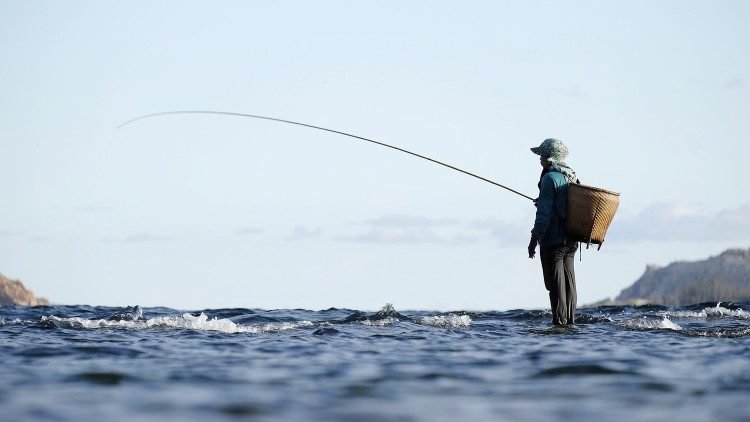On World Fisheries Day, the head of the Vatican’s Dicastery for Promoting Integral Human Development says that the industry’s “endemic problems” especially affect small-scale fishers, and calls for “individual and collective conversion.”
By Joseph Tulloch
Cardinal Michael Czerny, Prefect of the Dicastery for Promoting Integral Human Development, has released a message for World Fisheries Day, on 21st November.
In the message, he stressed both the tremendous importance of the fishing industry and the many problems it faces, and called for “individual and collective conversion.”
A crucial industry
Cardinal Czerny began by pointing out that, according to the UN Food and Agriculture Organisation, an estimated 58.5 million people were engaged in the fishing industry in 2020, which thus provides “the main source of income and livelihood for a substantial part of the population worldwide.”
Moreover, he said, as the most important single source of high-quality protein, “fish is a vital source of food for millions of people.”
The Cardinal also stressed the central role played by small-scale fisheries in developing countries, which make up the majority of those employed in the industry, and produce around 40% of the global catch.
Endemic problems
Despite the essential role it plays, however, Cardinal Czerny stressed, the fishing industry is “plagued by several endemic problems.”
Some of these, he said, are localised, and do not affect every part of the industry: human rights infringements, poor and unsafe working conditions incompatible with human dignity, sea and river pollution, destruction of coastal areas, unsustainable fishing methods, and illegal, unreported, and unregulated fishing.
Others, however, the Cardinal emphasized, including climate change, loss of biodiversity and ocean acidification, are “global issues affecting every country and ocean.”
Chief among these are the lingering affects of the Covid-19 pandemic, which closed ports, fish markets, and restaurants, and thus led to loss of employment and income for many in the industry.
Sadly, he added, “the economic impact of COVID-19 was strongly felt among small-scale fishers”, and although many governments attempted to support them, “regrettably, due to deficiencies within these exceptional governmental interventions, many people were left unaided and alone.”
The way forward
The response to these problems, Cardinal Czerny said, can only be “individual and collective conversion.”
He called for international cooperation to resolve these problems in the light of fairness, justice, equity, and subsidiarity, and for care of the oceans and their natural resources as a “common heritage of mankind”.
“The COVID-19 pandemic has taught us that everything is connected and that we are in the same boat,” he said. “It is necessary to join our efforts to create a new social conscience and innovative form of solidarity in which no one is left behind.”



